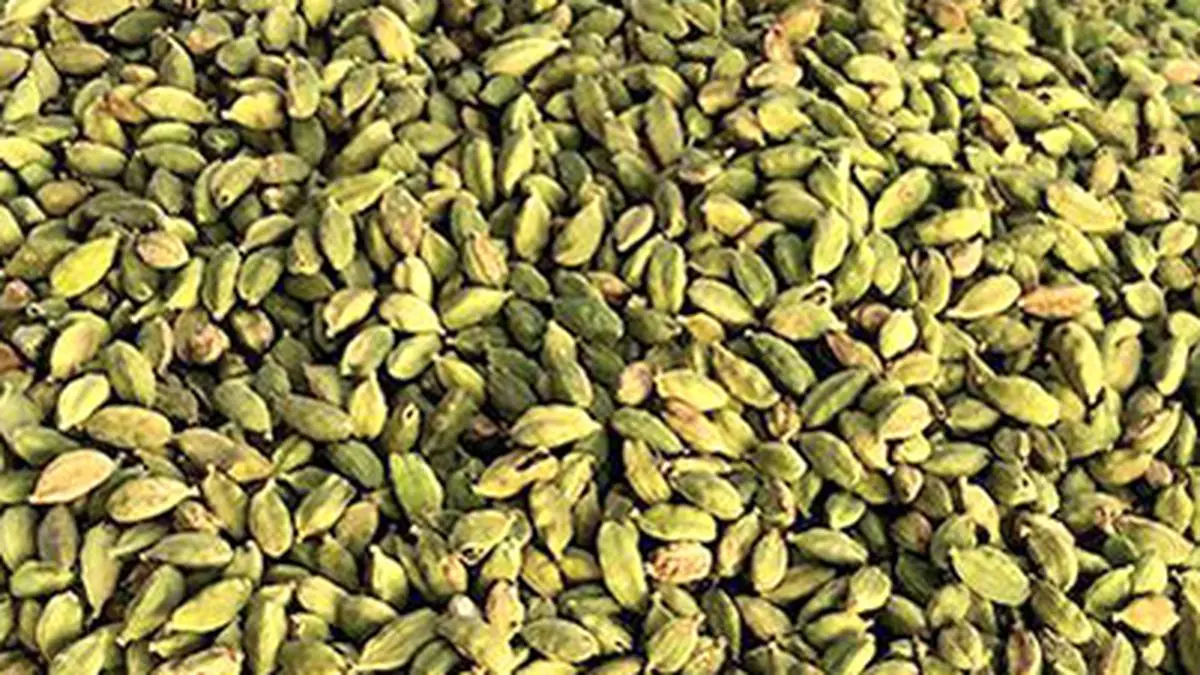As weather plays truant, cardamom production likely to drop by 40%
Cardamom production will likely drop by 40 per cent in the current harvest season as the crop was first affected by drought from February to May this year and then by torrential rains during June to August.
According to traders, they are now adopting a cautious approach as prices are ruling above ₹2,000 and have touched ₹2,300 a kg at the auction platform. At these prices, they are catering only to the market requirements.
PC Punnoose, General Manager of KCPMC, one of the auctioneers in Vandanmedu in Idukki, said cardamom production is likely to be lower by 30-40 per cent against the 25,000 tonnes estimated last year. The field situation is very bad and it is one of the worst years that farmers faced in terms of productivity. At the auction platform, 30-40 per cent of the capsules are leftover stocks or are last year’s produce.
Fungal outbreak
The prolonged drought from February to May has negatively affected the plant health and the scope for the first harvest. Torrential rains from June to August have aggravated a fungal outbreak reducing the productivity scope further in the current year. Coupled with this, is the damage caused by wind and these factors have devastated cardamom plantations, he said.
Despite a favourable trend on the price side, Punnoose said Indian premium range cardamom is not finding the required acceptance in the export market, especially when the competing Guatemalan produce is competitive in the Gulf markets.
According to SB Prabhakar, a cardamom planter in Idukki, local demand is tepid due to financial tightness and higher prices. The expected Diwali demand has not cheered the market. Domestic and export demand is expected to pick up after November and it could see some improvement in prices after December. The tension in West Asia is not helping exports at the moment.
Short-term gain for speculators
The production has been severely dented due to the El Nino drought from January to May with droppings in June and further damage due to winds and high temperatures in September. Out of current auction arrivals, 60-70 per cent is still from last season’s crop, which is expected to be exhausted only by mid-November, he said.
SKM Dhanavanthan, a cardamom exporter based in Bodinayakanur, said the current high volatility in prices may create short-term gains for speculators, but it is detrimental to the broader industry. Instead, it has created chaos in sales, particularly in international markets, where buyers are reluctant to engage in volatile pricing environments. A more predictable pricing environment builds trust with international buyers, enabling them to plan and budget effectively, thus stabilising demand.
